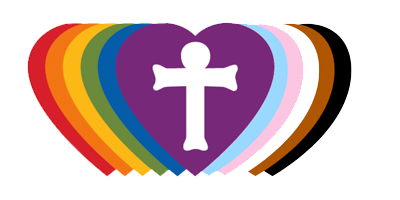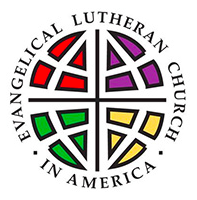Honoring God’s Gifts
Jan 08, 2023
Sermon 1-8-23
Epiphany of Our Lord
Text: Matthew 2:1-12
Pastor Jean M. Hansen
I hope you are not surprised that Christmas decorations still adorn the church; technically, the Season of Christmas ended on Friday, January 6, but since we are celebrating the Epiphany of Our Lord today, we’ve extended it just a bit. (I will tell you in advance, though, that the decorations probably will still be up next Sunday too, since we’re celebrating anniversaries today after worship rather than taking them down. Your help will be welcome for that task a week from today.)
On the Epiphany of Our Lord we remember the arrival of the Magi, sometimes called Wise Men, from the East who came to Bethlehem to honor Jesus, an event that occurred some weeks, months or even years after he was born.
I’m reminded of a story told by Pastor Chrissy Cataldo about her sister’s Texas church. It seems that as part of their decorations a manger scene was placed in the sanctuary where space was at a minimum. That year the small stable looked particularly crowded because someone had decided to put all of the manger scene animals and people inside at the beginning of the season. Usually, these characters in the story were added as Advent and Christmas progressed. For whatever reason, though, that was not the case this particular year.
So, one Sunday as the pastor preached in the very crowded chancel area, he turned around quickly and bumped right into the small, crowded barn. Down went one of the Magi, whose head popped off right in the middle of the worship service. The pastor leaned over, picked up the figure and it’s now detached head, and apologized saying, “I’m sorry. It looks like I broke his head off.” Then, without missing a beat, his wife said, “Well, that’s OK. He wasn’t supposed to be in there yet anyway!” (1)
I will say, though, that it was an important event when the Magi did show up. As astrologers, not kings, but certainly wise, they studied the night sky and interpreted any change in it as a sign that something important had occurred. For whatever reason, they determined that the appearance of a new star indicated the birth of a new king and decided that Palestine was a likely location for this to occur since the Jews were anticipating such a ruler. We surmise that, having reported this news to their superiors, they became the delegation sent honor this new ruler. So, this company of stargazers set out, probably from what was then known as Persia.
We do not know how many Magi there were; three has been settled on because there were three gifts. We also do not know exactly when they arrived. From the initial sighting of the star to their arrival at a house in Bethlehem would have been some time, particularly with a stop in Jerusalem in-between. Evidently the star was not GPS quality, or they would have gone directly to Bethlehem, and not stirred up trouble with King Herod in Jerusalem.
Rather than focusing on King Herod, though, who gets a lot of attention every Epiphany because of his vengeful and devious ways, and his intent to kill the newborn king, let’s instead broaden our view of the Magi. They were, as one commentator said, the wrong people doing the right thing. Being non-Jews and non-worshippers of the God of Israel made them the “wrong people”. But they acknowledged a sign sent by God and acted on their discovery by embarking on a long journey, taking impressive gifts. During their encounter with King Herod, they discerned that he was not on the “right side”. They went to Bethlehem, a little town with regular people, and located Mary and Jesus, whose impoverished home was the last place that emissaries from a foreign land would have expected to find a new king. And then, these star-gazing representatives of the “wrong side”, did an amazing thing, “they knelt down and paid him homage,” offering the treasures they had brought with them. They believed, in spite of the lowly appearance of the place and the people, that Jesus was “the one.”
It’s interesting to note that “to pay homage” is to announced allegiance to the king. During the feudal era this occurred in a formal ceremony in which the subject knelt and placed his hands between those of his lord, symbolically surrendering himself and putting himself at the lord’s disposal. A bond was created between the two.
Commentator Liddy Barlow reflects that it must have been a strange sight, grown adults – perhaps dressed in elaborate attire – prostrate before a toddler. I wonder if they felt awkward, or if they were so sure of who he was they fell to their knees with joy? Did they sense that a bond had been created between them and this child? So much so that all these centuries later we remember them as the representatives of the “nations” through whom Jesus was made manifest to the world?
There are many faith-message in this story. For example, the wording, “paid him homage”, the Gospel writer is, I think, showing us the upside-down nature of Gospel; the poor, the disadvantaged and the meek become the ones who are honored and blessed. And it happens in unexpected ways; for example, through star-gazing non-Jews who responded to signs and dreams sent by God.
The Magi bowed before the presence of the Divine, and Ms. Barlow reminds us that, we too can, and should, bow in the presence of the Divine wherever it is found. That involves paying closer attention to people and places where God is waiting to be revealed. Her words are so lovely that I have to quote them: “In our own ways, with bent knees or with humbled spirits, we can bow before bread, before babies, before people who are poor. We can pay homage to the vulnerable and the marginalized. We can kneel before the ocean wave, a tree in full color, a honeybee. We can be prostrate before signs of God’s love and evidence of God’s work. One by one … in exceeding joy, we can honor what is good and holy.” (2)
That’s another of the many things this story teaches us; God’s gifts to the world, especially Jesus, deserve our attention, adoration and to be shared with those who also are seeking a sign of the Divine. AMEN
-
“Guide Us With Your Perfect Light” by Chrissy Cataldo, January 7, 2018, www.wccucc.org
-
“In the Lectionary: Matthew 2:1-12” by Liddy Barlow, The Christian Century, January 2023, pg.23






